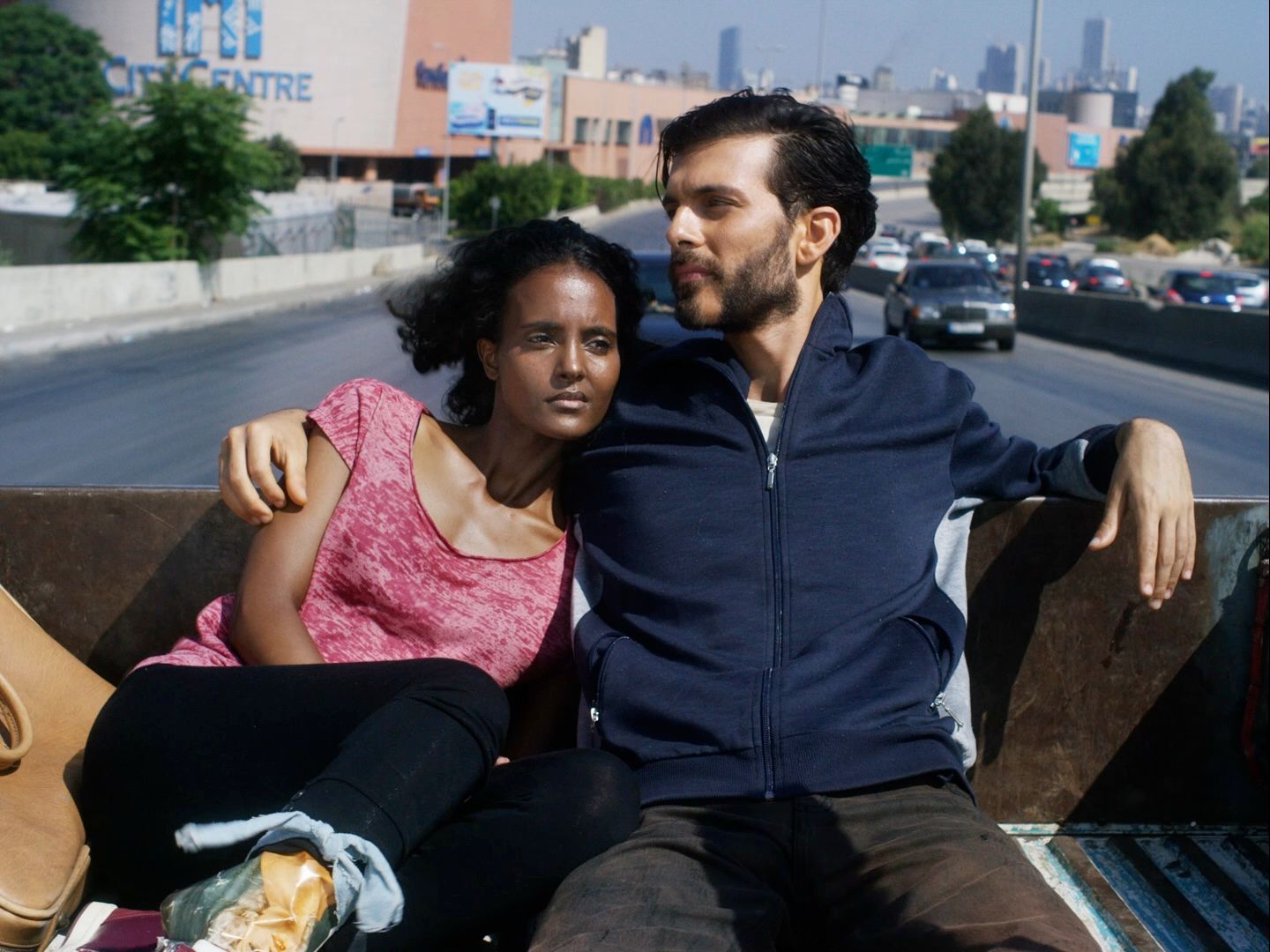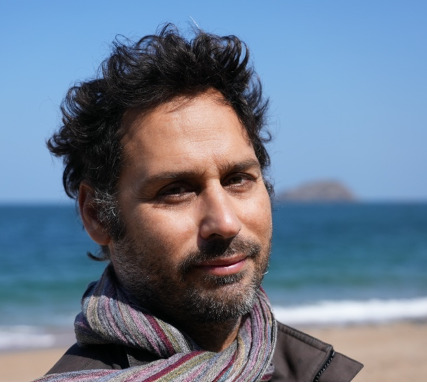Film Review by Robert Abrams, Emeritus Professor, Weill Cornell Medicine, New York
‘Dirty Difficult Dangerous’ (Wissam Charaf, Lebanon, 2023)
Dirty Difficult Dangerous opens as Ahmed (Ziad Jallad), a young Syrian refugee, walks the streets of Beirut, calling out the Arabic refrain of “Iron! Copper! Batteries” in the hope of exchanging old metal parts for cash. Like most who have sought refuge in Lebanon from the ravages of Syria’s civil war, he is destitute and miserable.1

The film then unfolds as a love story told against the backdrop of a humanitarian refugee crisis. A critical aspect of the narrative is its depiction of how the medical care of Syrian refugees is being delivered in Lebanon; it is a picture of inadequacy and cruelty punctuated by moments of unexpected kindness. The medical neglect of the Syrian refugees also has dichotomous parallels in other aspects of their lives in Lebanon, where they are generally regarded as barely human but occasionally treated with compassion. But first, some of the film’s story and context:
As a Syrian refugee, Ahmed is despised and marginalized in Lebanon as the result of years of mutual antipathy between the two neighboring countries, particularly between Lebanese Christians and Syrian Muslins. The beginning of a bitter, prolonged civil war in Syria has only exacerbated the longstanding mutual distrust. In Lebanon, the Syrian refugees are perceived as an economic drain on the country, just as the Lebanese refugees had been regarded in Syria during their own civil war from 1975 to 1990. (The history of these conflicts is further explained, along with its own affecting story, in the documentary, Batata (Noura Kevorkian, Canada, Lebanon, 2022).
For Ahmed, the son of a once-prosperous merchant in Syria, being reduced to the status of a peddler entails humiliation as well as deprivation. He can sleep only for periods of 4 hours at a time in a rota with Syrian compatriots in their hideout. Life for Ahmed is not only dirty and difficult, but as the film’s title proclaims, dangerous, too—armed gangs patrol the streets of Beirut searching for Syrian refugees who have broken the dawn-to-dusk curfew directed specifically at them.
That is not all. In Syria Ahmed had been gravely injured by a bomb, resulting in shrapnel being embedded in his right shoulder and arm, resulting in constant pain and a potentially grave metabolic threat to his health and life.
But Ahmed is not quite alone in his suffering. As he calls up to the residential balconies of Beirut, his distinctive voice is recognized by Mehdia (Clara Couteret), a beautiful young Ethiopian woman. Mehdia, also a refugee, has come to Lebanon in flight from parental pressure to marry a wealthy older man. Mehdia is now a servant for an aging couple, a retired army Colonel (Rifaat Tarabey) and his wife. The Colonel’s dementia gives way to intermittent rages during which he attacks Mehdia violently. She is a virtual prisoner in that household, as her passport has been withheld by the employment agency. There are many such semi-enslaved domestic workers in Lebanon, refugees from poverty or conflict in Ethiopia, Madagascar, Sri Lanka and elsewhere.
After Mehdia’s escape from her employers’ household, the couple flees to a refugee camp near the Syrian border where Ahmed’s mother has lived since her husband was killed. Personifying the emotional trauma of the war, Ahmed’s mother Salwa (Carol Abboud) is profoundly depressed, affectively flat and scarcely able to respond, signals that she is likely to remain in this state, or worse, for the rest of her life.2
Meanwhile, Mehdia had injured her leg during a frantic escape from her employers. When she and Ahmed reach a hospital, they encounter a childhood friend of his, Yasser (Rami Rkab), who has a prosthetic leg, another injury from the fighting in Syria. Yasser also displays his infected-looking scar from the recent sale of his kidney for cash.
Ahmed consults a doctor, too, hoping to sell one of his own kidneys, but is turned down because his body has been contaminated by the bomb’s metallic payload.
In the medical setting as well as everyday life, money is everything, and in Lebanon the destitute refugees are provided for last. Yasser’s doctor dismissively tells him his surgical scar looks fine, when it clearly does not. When the same doctor turns down Ahmed as a potential organ donor, he asks to keep his x-ray as valuable evidence of a wartime injury and a boon to his own career. Mehdia and Ahmed thus endure venality and casual dehumanizing cruelty in seeking medical care. In one of many memorable directorial gestures, Wissam Charaf reveals the depth of Ahmed’s anger when, after a moment of silence, a rigid steel pole that he had been holding tightly is left with a deep imprint of his hand. “How much would they give for a heart?” Ahmed asks bitterly before his rage becomes overwhelming. The imprint lingers on the viewer as well.

But remarkably, the story is interspersed with acts of decency that stand out prominently against the prevailing hostility. Toward the beginning of the film, a starving Ahmed is given a piece of fruit by a shopkeeper. Later, despite the bedraggled appearance that identifies Ahmed and Mehdia as Syrian refugees, a hotel manager overrules his clerk and allows them to claim the prize of a luxurious overnight stay that Mehdia had won in a contest.
At the hospital, Yasser, obviously suffering himself, spontaneously hands over one of his two canes to Mehdia. The doctor who examined Mehdia’s leg refuses payment. Then Yasser himself collapses on his piano keyboard, having just offered uplifting music for the children of the cheerless refugee camp where he lives, a hopeless man having offered a small measure of hope to the next generation.
In this frequently disturbing film, medical care is shown to reflect the cruelty of the neighboring civil war and the social backlash that awaits its victims as they flee the conflict. However, we are also reminded that love can flourish in the most unpromising of surroundings. It is the kind of love, in which each partner protects and sacrifices for the other, that defines and sustains hope.
References
1. Kikano F, Fauveaud G, Lizzarralde G. Policies of exclusion: the case of Syrian refugees in Lebanon. Journal of Refugee Studies 34(1): 422-452. 2021. https//doi.org/10.1093/jrs/feaa058
2. Kazour F, Zahreddine NR, Maragel MG et al. Post-traumatic stress disorder in a sample of Syrian refugees in Lebanon. Comprehensive Psychiatry 72:41-47. 2017. https://doi:org/10.1016/j.comppsych.2016.09.007